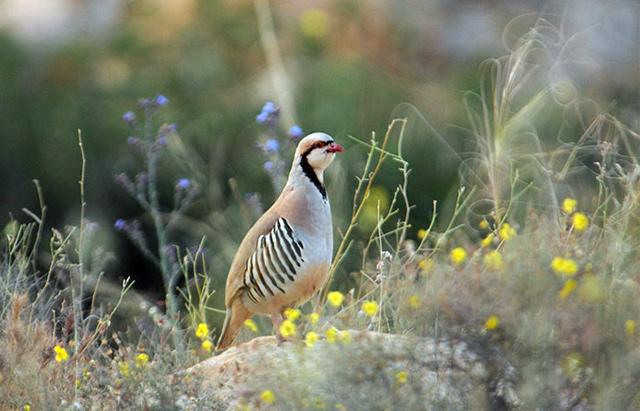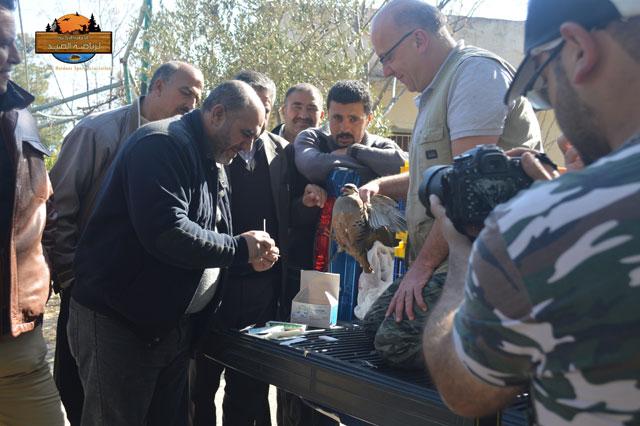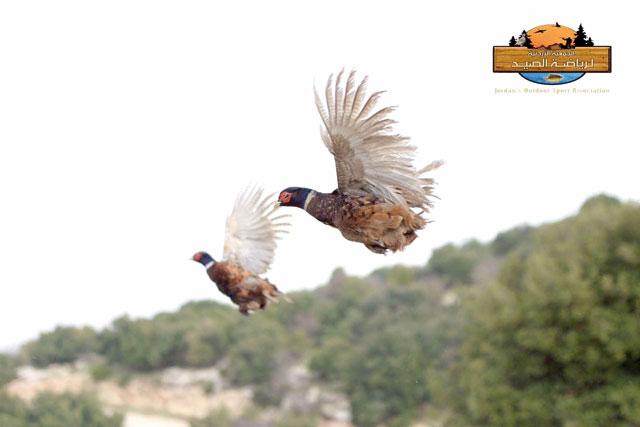You are here
Ban on hunting partridges was gift to poachers
By Ahmed Bani Mustafa - Dec 20,2018 - Last updated at Dec 20,2018

A decision to prohibit hunting of the sand partridge has not been effective, according to stakeholders (Photo courtesy of RSCN)
AMMAN — The decision to prohibit hunting partridges and sand partridges for three years was not effective, and allowed for illegal hunters to continue hunting the bird while their licensed peers had stopped, said stakeholders.
Jordan banned the hunting of partridges in 2016 to protect their dwindling populations. The ban, which is effective for three years across the Kingdom, will expire in June of 2019.
The birds’ numbers did not increase and hunting continued despite the ban, Jordan’s Outdoor Sport Association President Ramzi Handal said.
Licensed hunters abided by the ban, but that did not mean hunting the endangered bird was halted, as many hunters ignored the decision and enjoyed less competition from legal hunters, Handal told The Jordan Times, calling the ban a “gift” to unlicensed hunters.
Studies indicate that the numbers of partridges in their natural habitat are declining due to several factors; mainly illegal hunting and the destruction of the birds’ habitats and nests by poachers.
"There are only eight field personnel responsible for inspecting hunters’ commitments and illegal hunting," a hunter, who preferred to remain unnamed said.
The number of inspectors is not enough, he said, claiming that some of them are hunters, which is not a problem in of itself, but some are known to have committed violations before and after their employment as inspectors.
The decision to ban hunting the birds was taken by the Wildlife Committee, which includes representatives from six parties: the Royal Society for the Conservation of Nature (RSCN), the Agriculture Ministry, Jordan’s Outdoor Sport Association, the Rangers Department, academia and a wildlife researcher.
Mohammad Qadurah, an animal welfare liaison officer at the Agriculture Ministry, said that illegal hunting will always be present, with or without the ban, and authorities chase illegal hunters all the time, throughout the Kingdom.
Before the ban ends, the committee will convene to discuss the outcomes of the resolution and decide on continuing or halting it, Qadura said.
If the committee finds that the birds’ numbers are still in decline, it will extend the ban and look into more measures to protect them, he added.
Despite several attempts by The Jordan Times to contact the RSCN, none of the officials were available for comment.
A study, titled “Illegal hunting in Jordan: using social media to assess impacts on wildlife”, analysed 606 photographs from seven hunting groups posted on Facebook between 2015 and 2016, recording the killings of 4,707 native animals belonging to 59 species. Birds constituted the majority of the animals killed, followed by mammals and reptiles.
Related Articles
AMMAN — A new population of chukar, a game bird highly prized by hunters, has been released into the wild to offset its dwindling numbers, a
AMMAN — The Ministry of Agriculture has banned hunting of chukar and sand partridges, two bird species that are highly prized by hunters, an
AMMAN — Hundreds of pheasants and chukars, game birds highly prized by hunters, were reintroduced to their natural habitat to offset their d


















